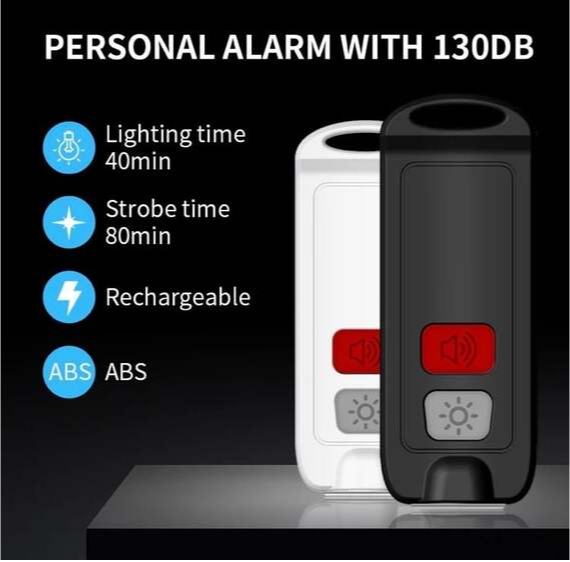Table of Contents
Perhaps a stranger stood a little too near or trailed you intently one evening as you headed home. Or perhaps burglaries have previously targeted your house. Sadly, most of us will experience feelings of vulnerability at some point in our lives.
Even though you can live without carrying a personal alarm with you, you never know when you’ll be in danger. If you find yourself in the wrong place at the wrong time, a brief stroll home on a dark evening might swiftly escalate into something more serious.
Same as living alone, both positive and negative aspects might exist. You have the entire house to yourself, yet it could be challenging to get assistance if something dreadful happens. Living alone can be risky, especially for older adults, due to falls and injuries, and risks can also exist for those with disabilities or ongoing medical issues. So how can more seniors or those who live alone keep safe?
While accidents are inevitable, you can protect yourself by taking precautions and trying to avoid them. Personal alarms are one of the ways you can ensure your safety, even when you are alone at home. With its loud sounds, your neighbours can immediately hear it whenever you need help.

Where to Buy a Personal Alarm?
Are you thinking of buying a personal alarm for yourself or your loved ones? My Security Store understands the need to go the extra regarding security and safety. We specialize in unique, quality security-related products and ship them directly from our warehouse in Queensland, Australia.
Personal assaults, home invasions, and robberies are rising these days. My Security Store provides small, personal attack alarms and lightweight self-defense tools that may be carried around on a keychain or in a pocket by your family members.
If you wish to know more about our personal attack alarms in Australia or the other security devices we offer, do not hesitate to call us! You can reach us at 0413 631 107 or email us at [email protected].
What is a Personal Alarm?
There have been personal alarms since the early 1970s. Since then, they have saved countless lives, but only recently have they begun to gain recognition.
Personal safety alarms have a long history of being essential for the safety of the elderly; however, practically everyone can benefit a lot from using personal alarms.
Personal defence alarms offer an additional layer of security that you might find beneficial in the event of the unthinkable, much like a typical security system. All ages can use these devices, and many will appreciate the extra piece of mind of having a personal alarm.
Why Should You Get a Personal Alarm?
A personal alarm is a discreet tool that enables you to keep tabs on and contact someone who may require assistance at some point. These tiny gadgets, sometimes known as life or personal defence alarms, send an emergency alert to pre-set mobile phone numbers or 24-hour monitoring service when activated.
Unlike smartphones, a personal alarm is primarily intended to be a quick and easy communication tool for emergencies or dangerous situations.
The elderly, youngsters, single workers, and those recovering from surgery or illness, as well as their family members and caregivers, can all feel more secure and at ease thanks to personal alarm.
Children and patients can easily and rapidly tell others if they need help, typically if they are lost or hurt.
Fast Assistance
The capacity to get help effectively and promptly is the most significant advantage of having a personal alarm. Alarms make getting aid seamless and straightforward, thanks to technology and its rapid development.
Home Independence
Another advantage of having a personal alarm is that individuals can continue to live independently in their own homes and have quick access to assistance.
It may not be necessary to enter a care facility without a personal alarm system. Personal alarm users can stay in their homes or wherever they feel most comfortable instead of moving out and into sheltered housing or residential care.

